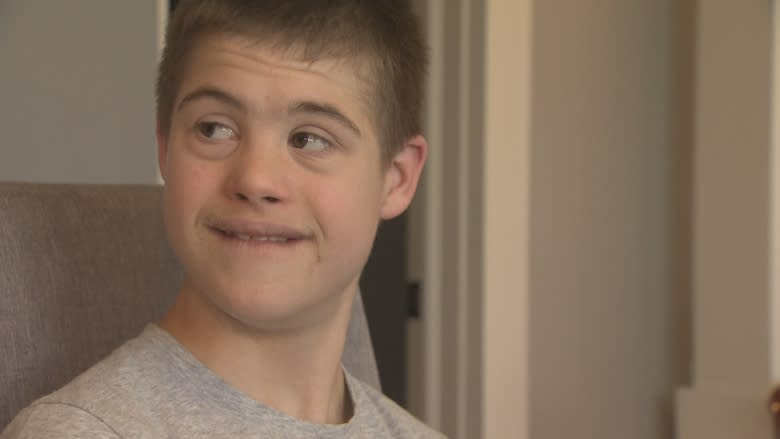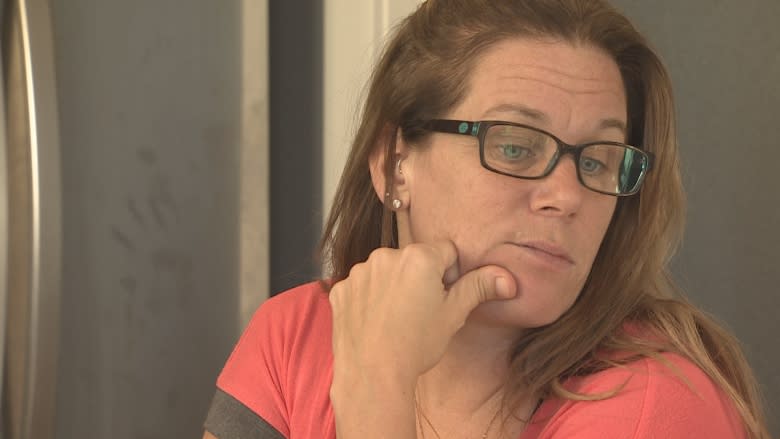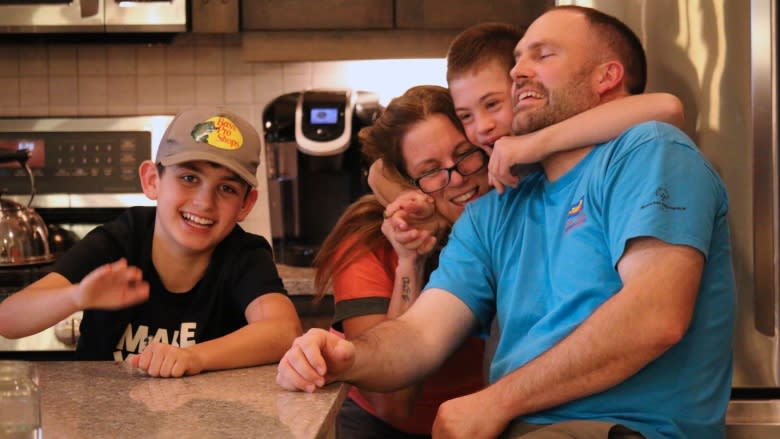Teenager with Down syndrome 'regressing' in Nova Scotia school system
Shauna and Michael Henry moved from Yellowknife to Nova Scotia hoping the school system would afford their three young boys a wholesome education, specifically for their eldest son, Jack, who has Down syndrome.
Now they're re-thinking their decision.
Shauna Henry said 13-year-old Jack's intellectual development has "been regressing," and she's concerned his recent misbehaviour is a result of how the Halifax Regional School Board is teaching children with cognitive disabilities.
"This year especially has drastically affected Jack," she said. "He's got behaviours now that we haven't seen in years.... If something doesn't change and he keeps regressing, we need to do something for him. Maybe we need to move."
'He's bored, so he acts out'
Henry said Jack has been showing signs of anxiety at home, and has been uncommonly aggressive.
Those behaviours, she said, typically come from a lack of consistency, challenging work or little interaction with others.
"He's bored, so he acts out."
Parents feeling left out
Henry said she's concerned that Jack's school, Georges P. Vanier Junior High, is lacking direction for special needs kids and that parents have been left in the dark.
She said she was recently told by another parent that the school's resource teacher, who oversees the education of kids with special needs, is on leave from the school and has not been replaced.
While each child with special needs is assigned an educational program assistant (EPA), who works with the resource teacher on each child's individual plan, they typically do not communicate with parents. Henry said that leaves a gap in understanding a child's personality.
The Halifax Regional School Board was unable to confirm the status of Jack's resource teacher, but in an emailed statement said "parents/guardians are involved at all stages of the process right from the start."
The board said parents can communicate with teachers through communication books that travel home with students. Those books contain a record of the student's activities and behaviours.
The school board stressed that the support of all students is an "ongoing process" and that regular communication between home and school is important.
School staff are also able to request support from child behavioural specialists if a child is having trouble learning.
More than math and spelling
The Henrys said despite their attempts to meet with Jack's teacher and EPA, they've only been invited to meetings at the beginning and end of each school year.
They said the minimal communication shows a lack of interest in their own goals for Jack.
"That's where we feel he's regressed. He really could potentially be more independent than what he actually is, but he's not because ... things haven't been put in place for him to become independent," said Henry.
Henry said Jack is kept out of the school cafeteria at lunch period, so staff can keep a close eye on him. She said those social interactions, with the "typical kids" at school are an essential piece of his education — preparing him for social interactions after graduation.
Right now, she said, Jack doesn't have any friends.
Furthermore, Henry said that not all children with intellectual disabilities need to be monitored by EPAs at every moment. She said allowing children like Jack to "just be kids" could normalize the differences in their behaviour.
She said it could be a learning experience for everyone.
Henry said that after telling a school official of her interview with CBC News, the school board connected with her and has begun a high school transition program with one of Jack's former EPAs.
Henry hopes her family will still be in Nova Scotia when Jack makes the move to high school.




